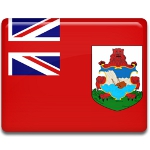Mary Prince Day in Bermuda Date in the current year: July 31, 2026
 Mary Prince Day, formerly known as Somers Day, is a public holiday in Bermuda celebrated on the Friday before the first Monday of August. It is the second day of Cup Match, a two-day cricket tournament that has been a public holiday since 1947.
Mary Prince Day, formerly known as Somers Day, is a public holiday in Bermuda celebrated on the Friday before the first Monday of August. It is the second day of Cup Match, a two-day cricket tournament that has been a public holiday since 1947.Cricket is one of the most popular sports in the British Overseas Territory of Bermuda. It was introduced to Bermuda by British soldiers and members of the Royal Navy in the 19th century; the first recorded cricket match was played in Bermuda in 1846 between British servicemen. By the late 19th century, it had become common to hold cricket matches to commemorate the abolition of slavery.
The first Cup Match was played between the Somerset Cricket Club and St. George’s Cricket Club in 1902. The annual match became so popular that lots of people missed work just to see the game. As a result, the government of Bermuda introduced a two-day public holiday dedicated to Cup Match in 1947, celebrated on the Thursday and Friday before the first Monday of August.
The first day of Cup Match was named Emancipation Day in 1999 to commemorate the abolition of slavery in Bermuda. The second day used to be named Somers Day after Sir George Somers, an English sea captain and privateer who founded the English colony of Bermuda. However, it was renamed Mary Prince Day in 2020 to honor the first Black woman to publish an autobiography recounting her experience as a slave.
Mary Prince was born in the late 1780s to enslaved Black parents. She grew up as the companion servant of Captain George Darrel’s granddaughter, Betsey Williams. When Mary was 12, she was separated from her sisters and sold to Captain John Ingham. Her new owner and his wife were extremely ill-tempered and severely punished their slaves for minor offenses.
In 1803, Ingham sold Mary to a salt raker from the Turks and Caicos Islands. Due to the nature of salt mining, Mary and other female slaves would package salt for up to 17 hours straight. Her new owner was also abusive, and Mary stood up to him on several occasions. Mary returned to Bermuda in 1812 and was sold to John Adams Wood of Antigua in 1815.
In 1828, the Woods traveled to London and took Mary with them as a servant. While in England, Mary and her owner had a fight, and Wood wrote a letter that nominally gave Mary the right to leave his household and work elsewhere (however, she still remained his slave, and Wood refused to free Prince or at least sell her to someone else).
After leaving Wood’s household, Mary met abolitionist writer Thomas Pringle, for whom she started working occasionally. It was Pringle who encouraged Prince to share her life story with Susanna Strickland who, like Pringle, was involved with the Anti-Slavery Society. Strickland wrote down Prince’s slave narrative describing the brutalities of Mary’s enslavement, and Pringle edited the manuscript.
The History of Mary Prince was published in 1831 and sold three printings in its first year. The first account of an enslaved Black woman’s life published in Great Britain, it gave a significant push to the abolitionist movement. Slavery was abolished in British colonies three years later, and Prince finally became a free woman. Sadly, very little is known about her life after this point.
- Category
- Public Holidays
- Country
- Bermuda
- Tags
- Mary Prince Day in Bermuda, Cup Match in Bermuda, holidays in Bermuda, public holidays